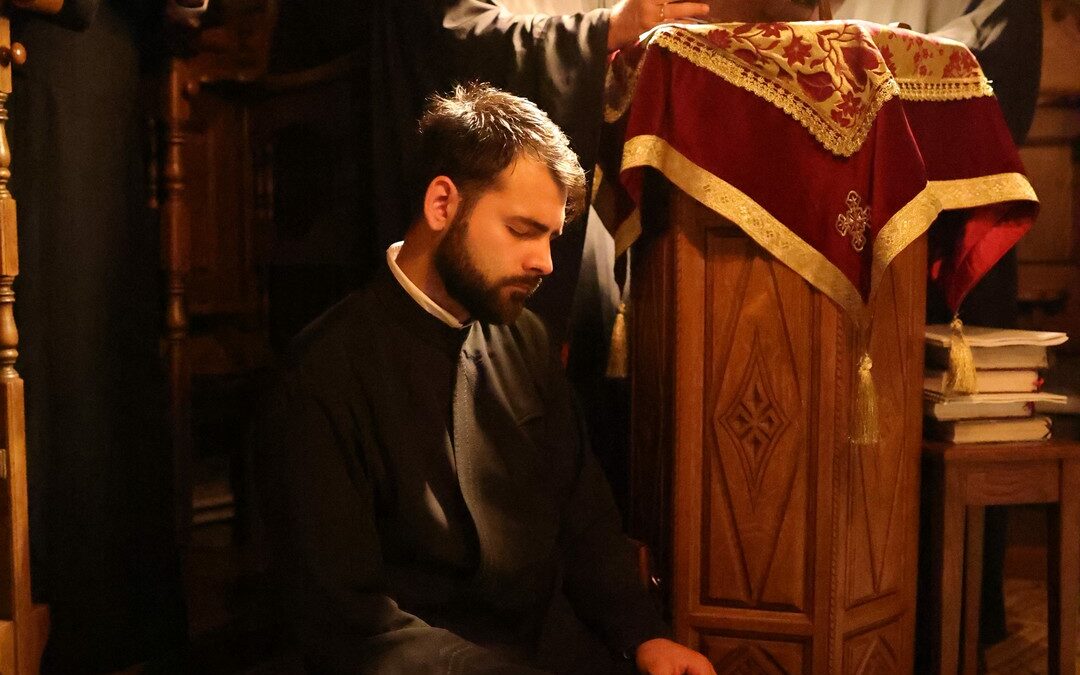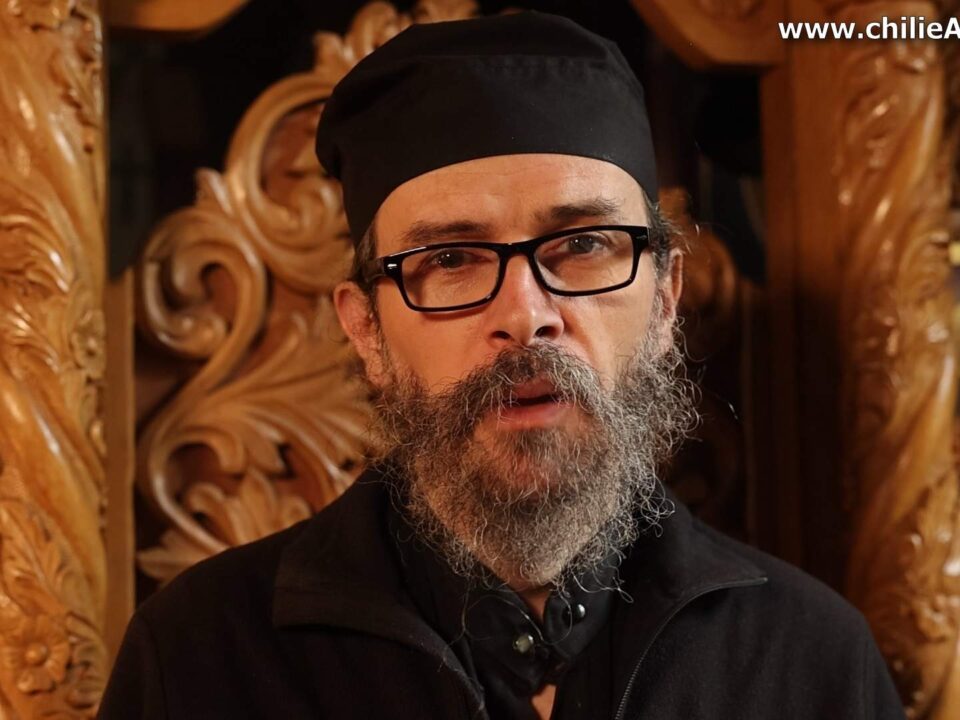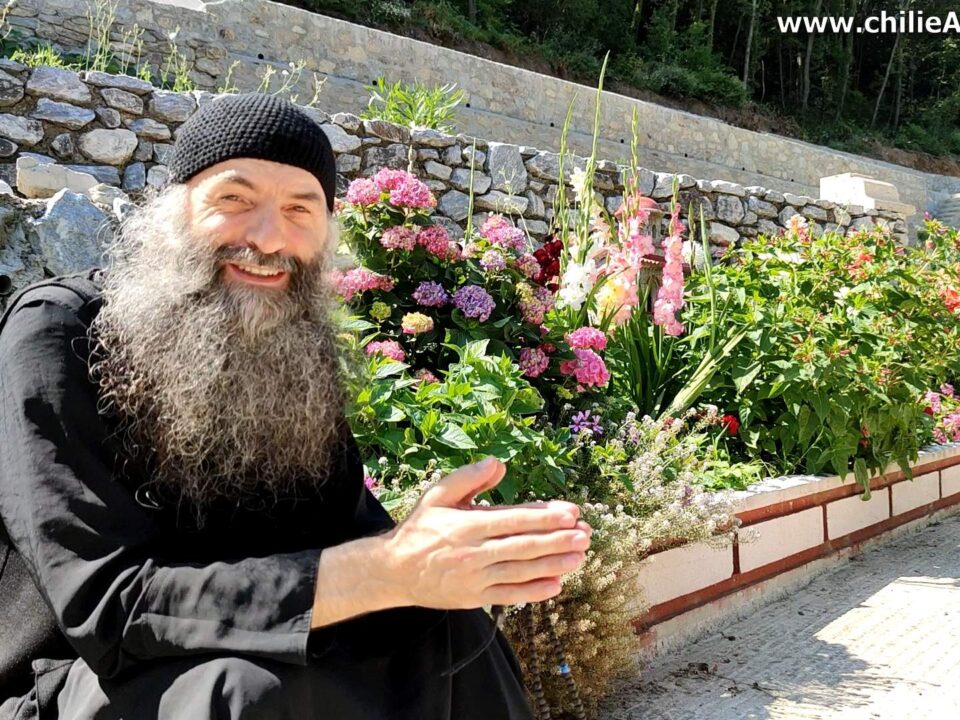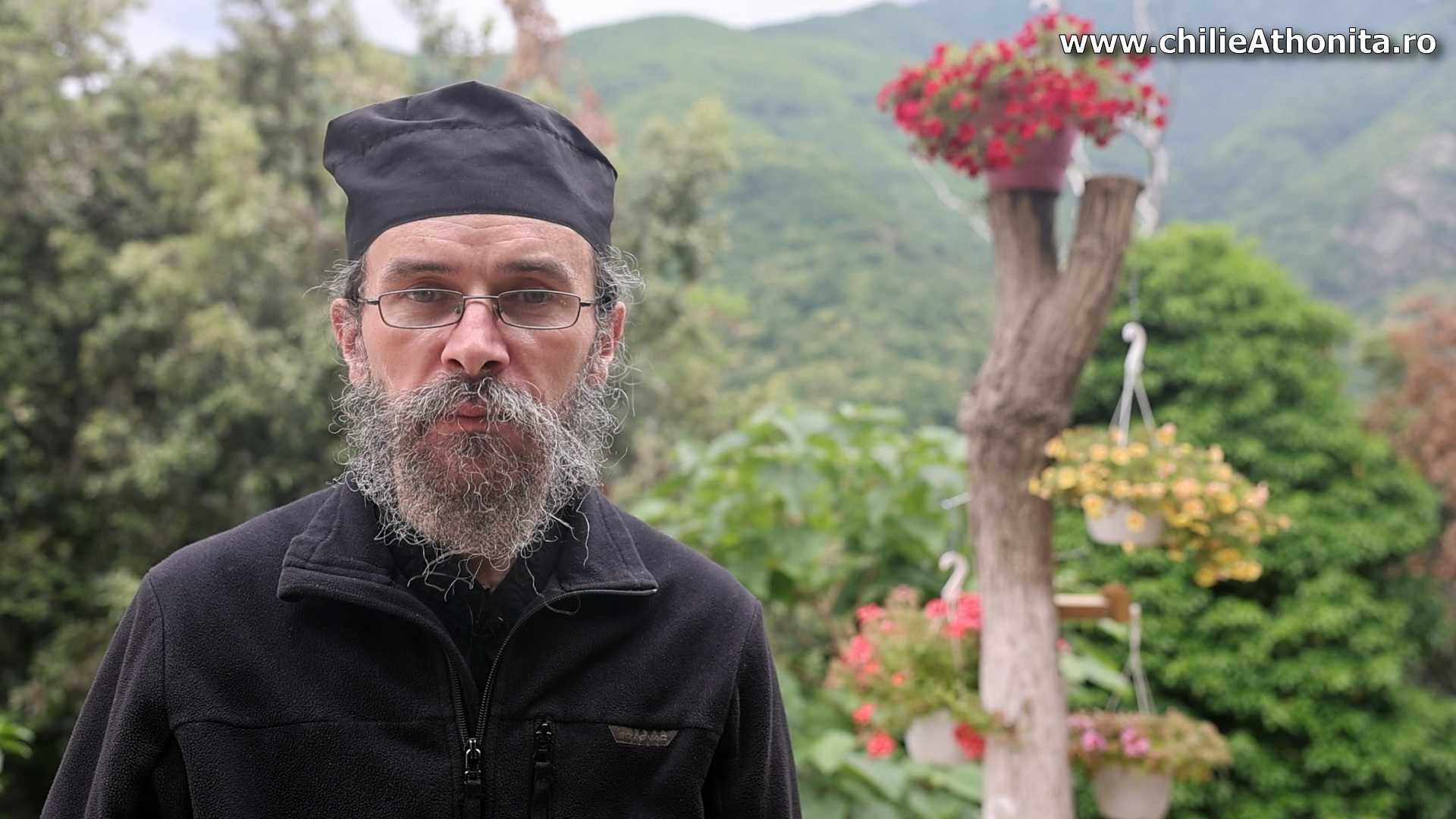
Father Efrem Atwood – Was He Guilty or Not? – Father Theologos
19 June 2022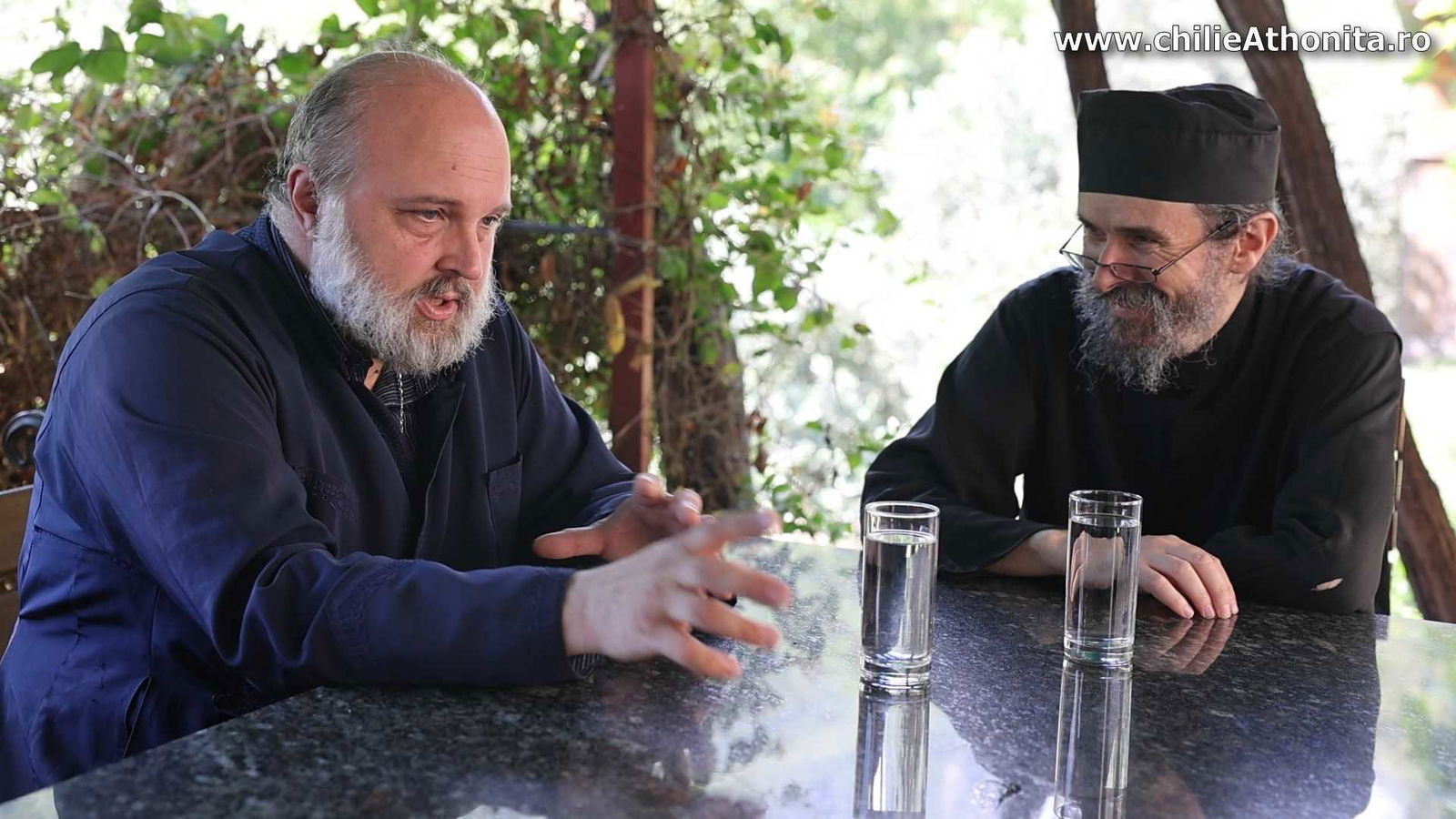
Online Problems, the Mystery of Athos, Romanian Saints – Father Ioan Istrati, Fr. Theologos
26 June 2022There are very, very many passions – whole books are written on this topic. However, a delimitation of these into categories is also necessary – even a basic delimitation with examples would help us grapple with these.
Enjoy!
Through the prayers of our Holy Fathers, Lord Jesus Christ, Son of God, have mercy on us. Amen.
Today we are going to talk a little bit about passions and dispassion. This is a very important and a very big theme in Orthodox asceticism and it interests us, or better said, it should interest us all. Of course this is a very big topic and there is a big preconception here: that we say about the saints that they are passionless. And they are passionless. But we say: since only the saints attain dispassion (freedom from passions), it means that we do not have to strive for it. No, brothers!
We have to fight for this! Why? Because dispassion is a long process that starts right now, in this moment. Do you understand?
Now, brethren, as I was saying, let’s not say: “I’m going to start later to let go of passions”, or “this is not for me”, or “I cannot reach the measures of the saints”. Yes, fine, we don’t measure up to the saints, but we have to fight. All these thoughts are diabolical: both giving up the fight and postponing it.
Do you understand? This is why we must fight, brethren.
Now, what is dispassion? Dispassion is the renunciation of passions, it is detachment from passions. OK, let’s move on with the definitions.
What is passion? Passion is a permanent sin, a soul disease. This is passion. Passion is defined as something that is not only a sin, but a continuous sin that man commits continuously, a chronic sin.
Just as body illness is the departure from the natural state of our body, similarly the soul illness (the passion) is the departure from the natural state of our soul. That is, when the man is ill, brethren.
Of course there are bodily passions and there are soul passions. Now, bodily passions, in the language of the Holy Fathers, beyond the physical illness that can occur too, they also have the soul component, which is predominant. That is, the wrong decisions of the soul cause bodily passions. Brethren, one is the illness of the body, and another is the passion of the body. You understand? Even if sometimes these terms are interchanged. That is, the term bodily passion is sometimes used for body diseases.
The bodily passion, as I was saying, is a disease that can also affect the body but which has a soul component too, because it is about the wrong decisions of the soul, or better said, of the mind.
Now, we are not going to talk about what all the passions are, because… it is a whole story, books should be written on how to treat the passions, but we will make a brief classification so that we can understand which are the passions and how to fight them.
In contradiction with the soul, which is spiritual, rational and eternal, The passions, in turn, are material, irrational and temporary. Understand? This is very important. And now we will take them one by one because the passions connect us to what is not in the nature of our soul, that is, they connect us to matter, to the temporary nature of this world, and they connect us to irrationality, to the absurd.
All these aspects are seen in all the passions. So the material character, the irrational character and the temporary character are more or less seen, but now I will give some examples in which one of these characters is prominently seen.
Now, the material character, the bodily character, the matter-loving and body-loving character are seen first of all in the destruction of family life when we are preoccupied with business, with business, with career, with promoting all these wealth-related things. Because they say: yes, I have to make money, I have to have a career and so on. And we see this in people, that they are continually preoccupied with business, from the morning to the evening and neglect their family. They stay constantly on the cell phone, brethren. This is not good!
I remember an episode with a big manager at a very large company in Greece. At one point he was ready to cry while I was telling him some spiritual things and he said: father, believe me that even now – that is, at the moment when I was saying the spiritual things – even now, I only think about the problems at work. On the other hand, of course, as I was saying, we must not be so concerned with matter, but with the family. But on the other hand, let us not be subjugated by the blood relatives either, that is, to continuously think about them. On and on… what is the child doing, what is the mother doing, what is the father doing, and so on.
And here I want to tell you a miracle that happened, told by the Saint Joseph the Hesychast and it is well known in the Holy Mountain. It’s about a brother which was constantly thinking about those at home. In fact a pilgrim came and the brother asked him what a certain family was doing. Because the respective pilgrim was from his village, but that brother did not disclose to the pilgrim that he was from the same village.
And then, the pilgrim told the brother that this family is doing miserably, that they are alone on the streets; the head of the family had died and now a mother with three daughters were left on the streets. And that pilgrim said that long ago, the three sisters had a brother, but nobody knows what has happened to him. It was himself that brother, whom the pilgrim did not know personally.
Then a great war starts inside that brother and he tells his abbot: “I am going home to help my folks, to help my family.” And then, the abbot tells him: “Don’t go because the good Lord is taking care!”
The brother insists: “No! I’m going there to help them because… who else will take care of them…” And then, in the end, he convinces his abbot… well…, the abbot, not to argue with him, lets him in fact and he goes alone without a blessing and so on. He goes and at a crossroads, he meets a monk coming from another direction. And the stranger asks the brother: “I see you are troubled, brother, what is the matter with you?” And this one tells him the whole story: how someone from his village came to their cell and told them about his family being in a very difficult situation and so on.
And then, the stranger tells the brother who told him the story: “Brother, look what’s the matter: leave your family to the care of God and you take care of monasticism!” And the brother tells him: “No, no way, I’m going there to help them because there’s no one else to help them” and all that.
The stranger tries to convince him, but he fails and finally he says: “Don’t you want to go back to your avva, to your abbot?” And he says: “No, I’m going to help them because who else would help them?” And then the stranger says to him: “So if you don’t want me to help them know that I am the angel of the Lord and I was sent by God in your place to take care of your family. Since you are going now, I am no longer needed.” And he disappears from his face.
Impressed, that brother returns to his abbot and continues his spiritual life.
Do you see, brothers, the passion? It is an irrational concern for the body, an irrational concern for the family. Do you understand?
And because of this, it is wrong both not to care for the family due to business and, on the other hand, to have an excessive concern about the family. This, as I said, happens in monasticism. In the world it may be every five minutes: what the other is doing and so on. A little freedom is also needed. I mean especially for the ladies who watch us. And, as I was saying, you see that the good Lord takes care.
And another theme also connected to these passions related to the body, related to matter, related to family. We need to know that, related to wealth, we don’t need to have deposits of things and take excessive care of ourselves. Only what is strictly necessary. The forms of wealth that must exist, let’s say, are exaggerated and sometimes they can appear in more subtle forms. The theme of wealth is much more subtle.
Not too long ago, my abbot came to me with a boy. The boy was very scared and my abbot tells me: please help him, he has a big problem, I don’t know exactly what it is, but give him internet access.
We don’t do that, it is a big problem here with the connection and so on and if we give to one we should give to all. In any case, a big problem. Don’t imagine that we have connection like in the world!
However, the young man seemed scared and, beyond that, my abbot had asked me, who was himself convinced by the young man’s behavior. Well, what was it in fact? What great need did the young man have for internet? So there were some messages on Snapchat and all these social media, on WhatsApp and…, the good Lord knows what, from his friends, and him being one day without internet in the Holy Mountain he was terrified that he was missing messages. Brethren, so not even business… It’s a passion, you understand? A great passion.
And this is again related to wealth, to the body, to the irrationality of friendships, and of course, as I said, to family.
And now that we have come to the irrational character of the passions, I want to say that we must insist a little bit here because passions mainly manifest themselves by their irrational character.
I remember that, at some point, there were two brothers… I had witnessed a…, between two man, one was older, the other younger and the younger brother was being insulted by the older brother and I knew very clearly that the younger brother was not guilty of what he was accused of by the older brother. And after, I don’t know how long, the older brother continuously insulted the younger one, I say to the younger brother: come on, tell him “forgive me!” so that we escape from this. Leave it, say “forgive me!”
And the big brother, when he sees me telling the younger one to say forgive me to escape, so to speak, the big brother starts attacking me, saying: “What are you doing? Who told you to interfere?” and so on.
And I say: “Brother, I told the younger one to ask for your forgiveness, even though he didn’t do what you said.”
And then of course I had to humble myself because I got involved and so on. Do you understand?
Anger clouds the mind. It is irrational. Passions are irrational.
Eh, another case: at some point, someone came to me, he humbled himself and said… humbled himself – I mean he came and said: “I’m a fool, a powerless and a proud.” And I said: “yes, it may be, that’s how it is, I realized it too, but have courage, don’t worry, the good Lord takes care.”
Ah, scandal and festival. The brother got troubled. Do you understand? And I say: “but why, brother, are you troubled, because you said you were a fool and a powerless and a proud and I said: ‘yes, it may be as you say’.” Do you understand how irrational passion is? You see? It is, in fact, about the lack of truth. The brother is not true to himself. We have to tell the truth, and then we need seriousness and watchfulness in our thinking, consistency with ourselves. Of course the brother said it with some humility, but without believing, without living what he said. Do you understand?
Here, brethren, of course that things seem simple, but they are very serious. We must have this seriousness, this consistency with ourselves, this attention, watchfulness, humility in thought. The moment we say something, let’s also believe it!
There was another one, who was sweeping and he was continuously saying: “Woe to me, I am the worst, the last of men” and so on… And a father, an avva, saw him and said like this, under his breath: “Hm, this one is really big or does he play smart? Let’s see!”
And he goes to the brother who was sweeping there and says: “Listen, brother, someone told me that you don’t do your obedience well.” The brother flared up, made a scandal and so on.
Well, how come, on the one hand he brags that he’s the worst and so on and he deserves hell, but the moment you tell him…, you make a remark like you know, something is not right… he becomes… Do you understand?
This means the irrationality of the passions, and due to this they are all cured by attention to ourselves. Consistency. Brother, be careful what you are saying! Verify what you are saying!
I remember another incident, since we are talking about the irrationality of passions. Someone, who didn’t know computer science and needed a program, asks: “which one here is the best in the field?” And the others point to me. This did not happen at Lacu, but somewhere else I’ve been. and that respective brother…. Yes, okay, of course, because only I knew computer science. I’m not saying that I’m a good monk, but that’s how the good Lord arranged that I knew computer science. And I go there and that brother says: “Good, let me teach you, let me show you how you should do this work!”
Brethren, I blocked a little bit. I mean good, okay, so the brother asks – who, pay attention, had never written a single line of code in his life – asks who is the best in computer science. Everyone points at me, the unworthy… because programming is a niche field, brothers, you know very well. I don’t say that it will save my soul because unfortunately I am a sinner, but there are not many who know, especially in spiritual environments… People are holy, but they don’t know programming.
Well… And I go to the brother and the brother says: “Come, I’ll show you how to program, what to do, what to write.” Understand? Well, this happened for my sins. I do not judge the man. But I want to emphasize the irrationality of the passions, to emphasize the passion. You see? So if the man had waited a little and thought, if he had the necessary watchfulness, he would have said: “Wait a moment, what am I doing now?”
He would have restrained his passion, but at the moment when the man is accustomed to teach, to teach everyone, to preach, and when I say to preach I mean not only the mission work, but to preach anything, that is, him to be the chief, then he doesn’t pay attention and tries to teach everyone. You understand?
And you must know that a very interesting phenomenon is happening: that the one who knows nothing is the most sure of himself. Then: let me teach you, let me tell you, and so on. Do you understand?
So we talked about the bodily character of the passions, we talked now about the irrational character of the passions, and now we will talk a little about the temporary character of the passions. Because passions keep man in this temporality of this world. Because of this brothers, whatever we are not taking with us to heaven we must be ready to give away that thing right now, right now…
Of course, sometimes it is very easy to give up something temporary. Please forgive me, but I am now thinking about the ladies, and especially about the young ladies, when they get rid of the clothes. But attention, when getting rid of clothes before time, this is still a passion. Because, although ladies realize very well the temporary character of clothes, there may be some problems on the side of love of wealth, love of the body, that is of the matter, of new matter. Do you understand?
It’s about the fact that we let go very easily of a thing if it is not of great importance to us. Other times, however, it is very difficult to give up something that we love passionately: a car, a watch…
I remember, someone had come and father Joseph of Vatopedi told him: – he had come with his stamp collection – Yes? And father Joseph told him: “Good, okay, you came to monasticism, now you have to throw away the stamps”. The man was about to faint. “How? I’ve been collecting stamps for so many years, and it is my life…”
Father blocked too. Well, brother, you don’t come here with… You understand? Sometimes things are much more subtle because the things we have to let go of, which are temporary, are, for example, a social position, glory.
I knew someone – she died – who was the manager of a hospital in Greece and she ruled, with an iron fist, a team of a lot of people. Well, after she retired, the woman died of a bad heart because she lost her position and that was it, her life was over, because she was a nobody now. You understand?
Brethren, we must know that we are eternal and at the same time we are limited and we must have spiritual life to be able to overcome these things. Mainly prayer is needed to maintain a balance among these passions.
The biggest shame is that after leaving all the passions that I said before, after receiving the call of the Lord and not of men, to the heavenly things, to also take care of something else which can do us no good in the hour of death in the hour of tribulation, because then is the very important moment when it is really seen how much we did in this life and where we are going.
May the good Lord help us.
Through the prayers of our Holy Fathers, Lord Jesus Christ, Son of God, have mercy on us. Amen.
Pomelnice online și donații
Doamne ajută!
Dacă aveți un card și doriți să trimiteți pomelnice online și donații folosind cardul dumneavoastră, sau/și să susțineți activitatea noastră filantropică, inclusiv acest site, vă rugăm să introduceți datele necesare mai jos pentru a face o mică donație. Forma este sigură – procesatorul de carduri este Stripe – leader mondial în acest domeniu. Nu colectăm datele dvs. personale.
Dacă nu aveți card sau nu doriți să-l folosiți, accesați Pagina de donații și Pomelnice online .
Ne rugăm pentru cei dragi ai dumneavoastră! (vă rugăm nu introduceți detalii neesențiale precum dorințe, grade de rudenie, introduceri etc. Treceți DOAR numele!)
Mai ales pentru pomelnicele recurente, vă rugăm să păstrați pomelnicele sub 20 de nume. Dacă puneți un membru al familiei, noi adăugăm „și familiile lor”.
Dumnezeu să vă răsplătească dragostea!


